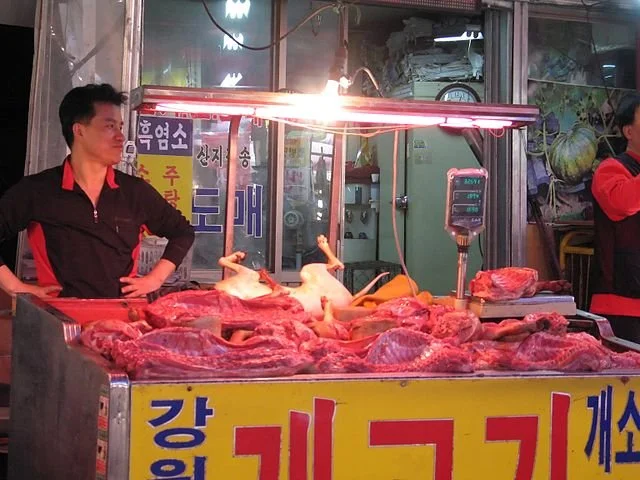Dog meat production and trade to be made illegal in South Korea
Credit: Wikimedia Commons
The consumption of dog meat is a centuries-old tradition, with the practice having existed for almost 46 years. Almost one million dogs are believed to be consumed in South Korea annually,, with “boshintang” (dog meat stew) being a popular delicacy, this figure has decreased over the years. Nowadays, more people are in favour of having dogs as pets and companions, rather than a dish on the dinner table.
On Tuesday 9 January, the South Korean Parliament officially passed a Bill banning the production and sale of dog meat. Recognising the value of animal rights, the National Assembly unanimously passed the bill, which aims to “pursue respect for life, and a harmonious co- existence between humans and animals”. It is estimated that there are around 1,156 dog farms in South Korea, with almost 1,666 restaurants that sell over 388,000 dogs for consumption per year. However, studies have shown that more than half of South Koreans want dog meat to be banned, with the majority of South Koreans no longer consuming it.
The law will be enforced in three years’ time and will render the butchering, consumption, trade and distribution of dog meat illegal. If anyone is found to exploit these laws, they will be either sentenced to two years of imprisonment or met with a hefty fine. The bill has been met with a lot of support, with animal rights activists gathering at the National Assembly to celebrate, bringing images of dogs and chanting, “Dog meat-free Korea is coming”. However, those who are active in the trade of dog meat, such as farmers and restaurant owners, face pressures to find alternative sources of employment and income before the legislation is properly established and in force in 2027.

